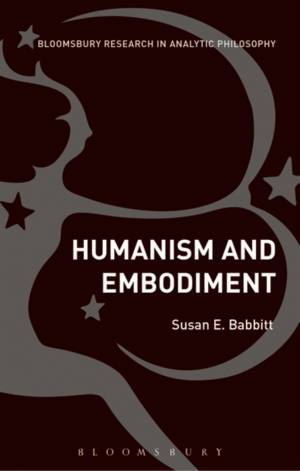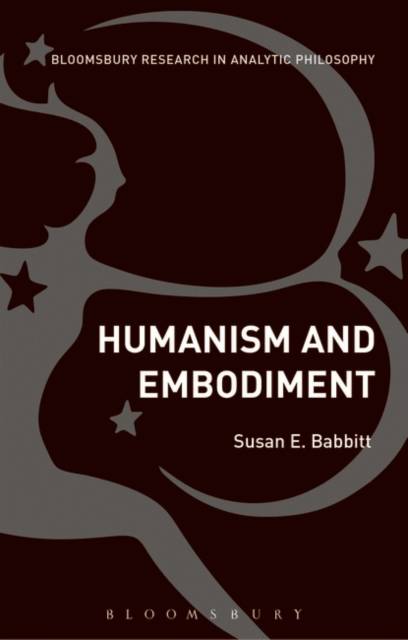
- Afhalen na 1 uur in een winkel met voorraad
- Gratis thuislevering in België vanaf € 30
- Ruim aanbod met 7 miljoen producten
- Afhalen na 1 uur in een winkel met voorraad
- Gratis thuislevering in België vanaf € 30
- Ruim aanbod met 7 miljoen producten
Zoeken
€ 322,45
+ 644 punten
Uitvoering
Omschrijving
A live issue in anthropology and development studies, humanism is not typically addressed by analytic philosophers. Arguing for humanism as a view about truths, Humanism and Embodiment insists that disembodied reason, not religion, should be the target of secularists promoting freedom of enquiry and human community.
Susan Babbitt's original study presents humanism as a meta-ethical view, paralleling naturalistic realism in recent analytic epistemology and philosophy of science. Considering the nature of knowledge, particularly the radical contingency of knowledge claims upon causal mechanisms, religious thinkers like Thomas Merton and Ivan Illich offer more scientific conceptions of practical deliberation than are offered by some non-religious ethicists. Drawing on philosophical sources such as Marxism, Buddhism and Christianity, this original study considers implications of an embodied conception of reason, revealing philosophical, practical and political implications.Specificaties
Betrokkenen
- Auteur(s):
- Uitgeverij:
Inhoud
- Aantal bladzijden:
- 208
- Taal:
- Engels
Eigenschappen
- Productcode (EAN):
- 9781472529145
- Verschijningsdatum:
- 1/08/2014
- Uitvoering:
- Hardcover
- Formaat:
- Genaaid
- Afmetingen:
- 156 mm x 234 mm
- Gewicht:
- 467 g

Alleen bij Standaard Boekhandel
+ 644 punten op je klantenkaart van Standaard Boekhandel
Beoordelingen
We publiceren alleen reviews die voldoen aan de voorwaarden voor reviews. Bekijk onze voorwaarden voor reviews.







